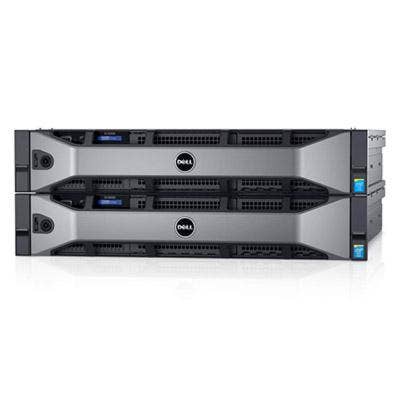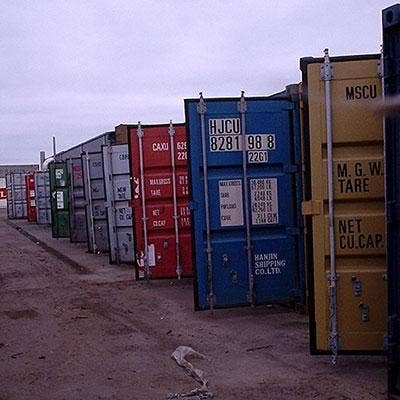Q&A: Dell Cloud Exec On Red Hat Partnership, Co-Existence With EMC Software-Defined Product Lines And Competition With HPE

Grand Opening
Dell says its latest enterprise software-defined storage effort with Red Hat will co-exist with software-defined products that will be brought in with the pending acquisition of storage giant EMC, and will be more flexible than Red Hat solutions offered by Hewlett Packard Enterprise.
Jim Ganthier, Dell vice president of engineered solutions and cloud, told CRN the new Dell DSS 7000 object storage server for Red Hat's Ceph 2 open-source, software-defined storage platform underlines Dell's commitment to offering customers a wide variety of product options, and will be slotted into Dell's product portfolio alongside EMC's ScaleIO, Isilon and Elastic Cloud Storage solutions.
Ganthier also argued that the new Dell-Red Hat Ceph line emphasizes the difference between Dell's "heterogeneous" strategy and HPE's strategy of "just trying to make it work."
The DSS 7000 is a high-capacity object storage server for Ceph environments. It's designed for scale-out cloud data centers, putting 90 3.5-inch drives in one 4U chassis, and delivering up to 720 TB of capacity, according to Dell. Dell is set to acquire data storage giant EMC in a more than $62 billion merger expected to close before the end of October.
What follows in an edited excerpt of CRN's conversation with Ganthier.

Can Dell's Red Hat Ceph relationship live side by side with EMC's software-defined storage products like ScaleIO, Isilon and Elastic Cloud Storage?
Absolutely, and they most likely will. We don't try to force you down the path of everything you have must be our proprietary stock. It's about customer choice. For customers who want to go purely Open Stack, we have the ability to be heterogeneous, and at the end of the day it's about helping the customer get the best outcome. I see these standing side by side with no issue at all.

Why is Dell's Red Hat partnership different or better than HPE's?
They do have a longstanding partnership, but they joined the party after Dell did. This is true co-engineering and co-innovation. HP will talk about being heterogeneous, finally, but we've been heterogeneous since the company was born in [Chairman and CEO] Michael [Dell]'s dorm room. We'll not only help at the solutions level, but also at the product level. HP won't come up with DSS 7000, which will really make Ceph sing, they'll attempt to have you use 3Par and try to make it work. Last year, we won [Red Hat] partner of the year, if that says anything.

W here are the best margin opportunities for partners with the new Ceph solution? What makes it a good fit for the channel?
We've come up with a validated system. It's already prepackaged. We've done a ton of the engineering. Partners can be confident and propose an OpenStack offering based on this, and they can have the confidence that they have the full support of Dell and Red Hat behind them. We've done a lot of the heavy lifting, a lot of the engineering upfront. Let us worry about the infrastructure, and channel partners can get additional margins with services, they can resell Dell Financial Services and get incentives, they can pull through client, and to some extent, software components with it. It boils down to, are we helping ourselves and our channel partners? And the answer is yes. We have ability to power a lot of the hyper-scalers. We're creating platforms that can take advantage of Ceph. Partners can deliver maximum density and performance. People always go by best performance per dollar. The partner wants to promise this the best performance per dollar, and you can do that with Dell. We've tested, and we've published the results. We can help partners do the same. This is an order of magnitude easier than we were two years ago, when you'd have to buy all the parts, assemble them yourself and probably have to change parts as it's rolling down the road. Now, we've taken that out of the process.

Who's the customer for the DSS 7000 and Ceph?
Some of the leading HPC [high-performance compute] teams on the planet. Monash University in Australia built a solution on Dell and OpenStack for their researchers to use. It improves efficiency, improves value and maximized returns, and it's a quarter the price of other vendor offerings. Verizon did a large Open Stack cloud deployment, five U.S. data centers, with Dell, Red Hat and Big Switch.

Is Ceph 2 essentially Dell's software-defined storage strategy?
No. It's one of them. One of the things that separates Dell from anyone else is, we provide a lot of the computational power and engineered solutions. We also have software stacks for VMware and for Microsoft. Those comprise the bulk of Dell's SDS strategy. We were one of the first to talk about bright box, or the larger future-ready enterprise. Partners can have a conversation with their customers and they won't feel locked in. It gives them a leg up. As the industry moves to cloud, big data, HPC, it gives them a path and gives the customers a path where they can see a way forward.

What is Dell doing to support container technology?
A lot. We're working with Intel and others. We have multiple product and platforms for test and validation. We work with Core, Mezo, Docker and others partnerships. As use becomes more mainstream, you can anticipate we'll start to roll those in as customers ask for predefined offerings. We're making sure we understand the [total cost of ownership], the [return on investment] and other things customers ask for. A couple of folks do it today, but I'd say the next year, year-and-a-half, we'll see the early adopters kick in, once one [platform] becomes the standard within a couple years, we'll see wider adoption. It's the same thing that happened with Linux, and with virtualization, we know who wound up winning that war. This is pretty much the same thing. For cloud native, and born-in-the-cloud, people want to have the capability to move workloads rapidly and be able to take everything with it as an integrated package. Give it a couple of years, and it will be like everything else. We're doing small-scale deployments, and we're starting to see early adopters. It's small now, but it's gathering momentum. There are lots of questions. With technology validation you also need business validation. You want to be able to tell partners and customers when and where it's right to use containers, and we want to be able to have that conversation.